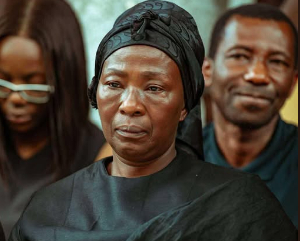Accra, Feb. 24, GNA- Mr. Kwadwo Adjei-Darko, Minister for Local Government and Rural Development, Tuesday announced that Cabinet was seriously considering increasing the District Assemblies Common Fund (DACF) allocation from the constitutionally mandated five per cent to 7.5 per cent of annual national revenue.
He made the announcement in a contribution to a motion for the adoption of a report on The Review of the Formula for the Distribution of the DACF, moved by Mr. Gabriel Y. Amoah, Chairman of the Parliamentary Select Committee on Local Government and Rural Development.
The Committee in their report recommended among other things an increase in the government allocation into the DACF from five per cent to 7.5 per cent, to ensure that the district assemblies received enough revenue for development.
The Minister noted that long before the recommendation by the Parliamentary Committee, Cabinet had been considering the increment of the DACF allocation to enable the district assemblies to undertake more developmental and revenue generation projects in the 110 districts. "We have not concluded yet so I cannot give a concrete assurance as to when it will finally be done and what percentage it will be increased to," he said.
Mr. Adjei-Darko said, while the increment of the DACF was under consideration, it was also important for the district assemblies to employ competent staff to ensure proper financial management and discipline, with the view to yielding maximum returns from the common fund.
He said government was more than committed to ensuring that the district assemblies had adequate funds to undertake development projects.
"Outside the Common Fund, government for instance allocated an extra amount of 25 billion cedis to the district assemblies in Accra and Kumasi to address the problem of waste management last year," he said. "This year we are allocating 77 billion for the same purpose in the Accra, Kumasi and Tema metropolises as well as the Shama- Ahanta district."
Mr. Adjei-Darko said government expected the citizens to reciprocate the effort of government by adhering to proper waste disposal practice to reduce the spread of filth.
He said it was not good enough for citizens to throw litter about indiscriminately and turn around to accuse government of not doing enough to manage waste in the country.
"Last year government allocated 500 million cedis for the collection of refuse heaps in some areas in Accra, but in the process some traditional leaders in some areas demanded 100,000 cedis and a bottle of liquor before they allowed the workers to collect the refuse. Such attitude to waste management is negative and need to be checked," he said.
Mr. Adjei-Darko observed that one way funds could be generated to take care of waste management was the effective collection of property rates in Accra, adding that in most of the sub-metros, there was not even an officer in charge of the collection of property rates.
Mr. Freddie Blay, First Deputy Speaker said the DACF would serve its real purpose only when it was used as a means to an end and not an end in itself.
He explained that the DACF was meant to serve as capital for the district assemblies to encourage residents in their respective districts to go into revenue generation ventures, from which profit yielded would be used to develop the districts, "but looking at the current situation, a large chunk of the fund is being used in many districts for projects which do not generate any revenue."
He called for the employment of financial experts to assist the various districts to make the best of their portions of the fund.
Mr. Amoah in his report said there was the need to adequately resource the office of the Common Fund Administrator to ensure effective monitoring of the fund.
He noted that the office of the Common Fund Administrator draws financial resources from the Consolidated fund, but that was not enough. "Currently his office has only two ten-year old Toyota Land Cruisers and a high staff turnover due to poor conditions of service," he said. Mr. Amoah also called for a special budget to be made for sanitation in the municipalities and metropolises to assist them undertake effective waste management, with the view to beautifying the cities to attract tourists.
According to the report, between 1994 and the close of 2003, government had lodged a total of 1,757 billion cedis into the DACF. The highest amount lodged into the fund in a single year was 581.400 billion cedis in 2003 and the lowest was in 1994, 38.490 billion cedis. Out of this amount, the highest being 36.7 per cent was spent on Administrative Structures and Rural Housing enjoyed only 1.1 per cent being the lowest, while Basic Education came second with 16.4 per cent. Parliament unanimously adopted the report for consideration by a voice vote.
General News of Tuesday, 24 February 2004
Source: GNA












